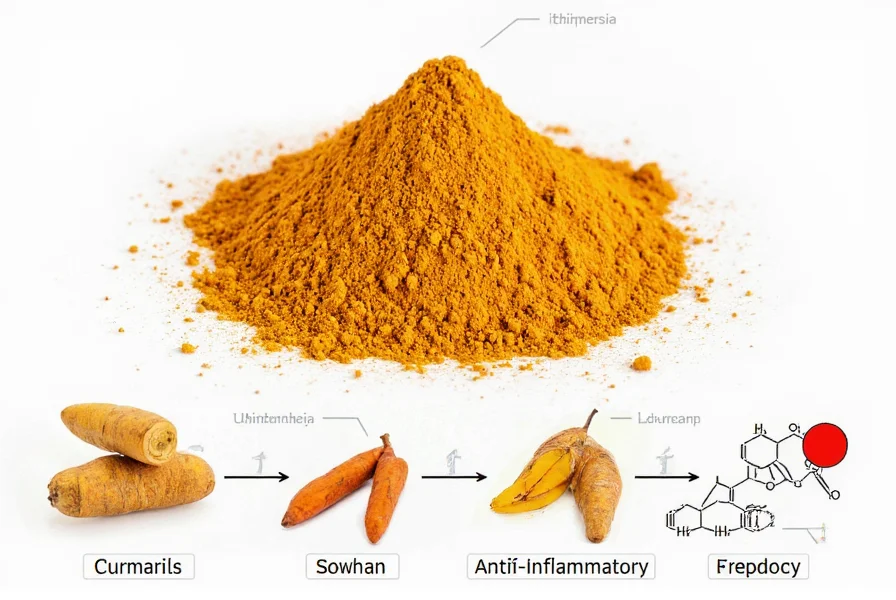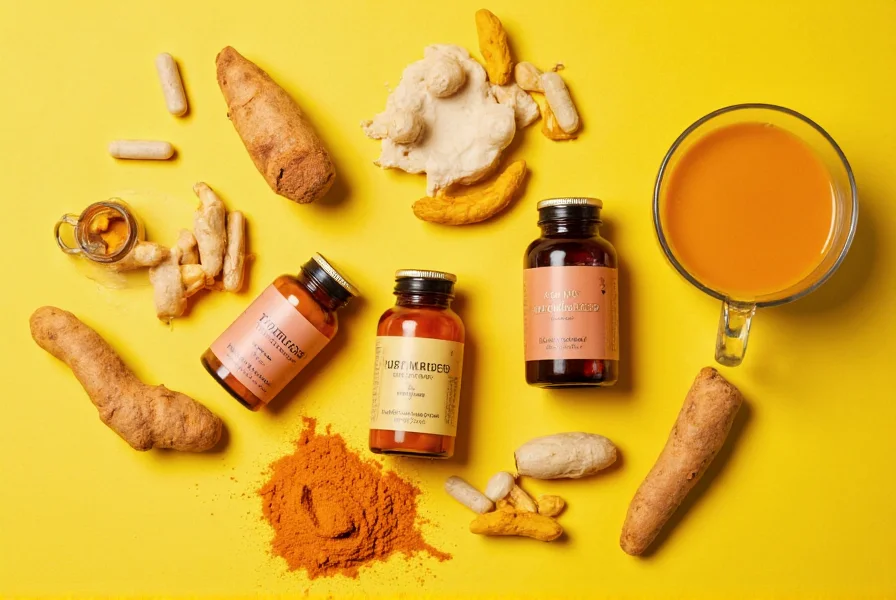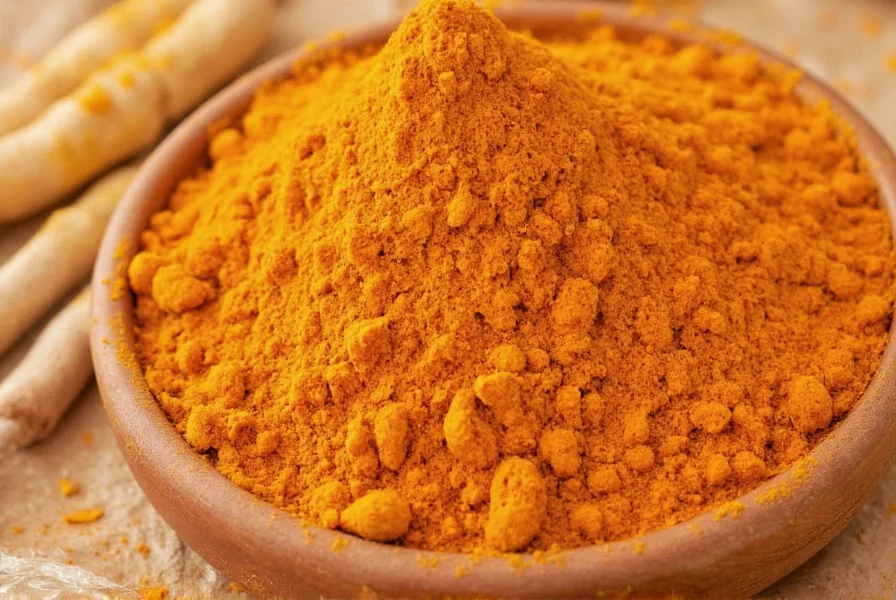Understanding the difference between turmeric and curcumin is essential when exploring what are turmeric curcumin good for. Turmeric is the bright yellow spice commonly used in curry dishes, while curcumin represents its most active chemical compound, accounting for about 2-8% of turmeric's composition. This distinction matters because most scientific research focuses specifically on curcumin's health properties rather than whole turmeric.
The Science Behind Curcumin's Health Benefits
Curcumin's primary mechanism of action involves its potent anti-inflammatory and antioxidant properties. Unlike many pharmaceutical anti-inflammatory drugs, curcumin works through multiple pathways in the body without causing significant side effects. Research published in the Journal of Medicinal Food indicates that curcumin can inhibit several molecules known to play roles in inflammation, including nuclear factor-kappa B (NF-kB), enzymes like cyclooxygenase-2 (COX-2), and various inflammatory cytokines.
Key Health Benefits Supported by Research
Powerful Anti-Inflammatory Effects
Chronic inflammation contributes to numerous health conditions, from heart disease to Alzheimer's. What makes curcumin particularly valuable is its ability to match some anti-inflammatory medications without gastrointestinal side effects. A comprehensive review in Drugs in R&D found that curcumin supplementation significantly reduced inflammatory markers in multiple clinical trials. People searching for what health benefits does curcumin provide often discover its effectiveness for conditions like metabolic syndrome, where inflammation plays a key role.
Antioxidant Protection Against Cellular Damage
Curcumin neutralizes free radicals through its chemical structure while also stimulating the body's own antioxidant enzymes. This dual action makes it particularly effective for combating oxidative stress, which contributes to aging and many diseases. Studies show curcumin increases brain-derived neurotrophic factor (BDNF), a growth hormone that functions in the brain, potentially delaying or reversing brain diseases and age-related cognitive decline.
| Health Condition | Research Evidence Level | Recommended Daily Dose | Timeframe for Effects |
|---|---|---|---|
| Joint Pain/Arthritis | Strong clinical evidence | 500-1,500mg curcumin | 4-8 weeks |
| General Inflammation | Good clinical evidence | 400-1,500mg curcumin | 2-4 weeks |
| Mood Support | Emerging evidence | 500-1,000mg curcumin | 4-6 weeks |
| Heart Health | Promising preliminary evidence | 500-1,500mg curcumin | 8-12 weeks |
Joint Health and Arthritis Management
When people ask is turmeric good for inflammation, joint health represents one of the most well-documented applications. Multiple studies, including research in the Journal of Alternative and Complementary Medicine, demonstrate that curcumin can reduce pain and improve function in people with osteoarthritis and rheumatoid arthritis. In some trials, curcumin performed as well as or better than conventional NSAIDs for managing arthritis symptoms. This makes curcumin for joint pain relief a compelling natural option worth considering alongside conventional treatments.

Cognitive Function and Brain Health
The potential cognitive benefits of curcumin represent an exciting area of research. Studies suggest curcumin may cross the blood-brain barrier and has shown promise in improving memory and attention in older adults. Research published in the American Journal of Geriatric Psychiatry found that curcumin supplementation improved memory and mood in people without dementia. Scientists believe these effects relate to curcumin's anti-inflammatory properties and its ability to increase BDNF levels, which support neuron growth and connectivity.
Heart Health Support
Curcumin appears to improve endothelial function—the lining of blood vessels—which plays a crucial role in regulating blood pressure and clotting. A study in Nutrition Research showed that curcumin supplementation improved endothelial function as effectively as exercise in postmenopausal women. Additionally, curcumin's anti-inflammatory and antioxidant properties may help reduce risk factors for heart disease, including oxidation of LDL cholesterol and inflammation in blood vessels.
Important Considerations and Limitations
While exploring what are turmeric curcumin good for, it's crucial to understand several important limitations. First, curcumin has notoriously poor bioavailability—meaning your body doesn't absorb it well on its own. Most high-quality supplements combine curcumin with piperine (from black pepper) or use specialized formulations to enhance absorption by up to 2,000%.
Second, while research is promising, many studies use higher doses of curcumin than you'd get from dietary turmeric alone. The typical curry contains only about 20-30mg of curcumin, whereas most clinical trials use 500-2,000mg of standardized curcumin extract.
Third, scientific evidence for some claimed benefits remains preliminary. While the anti-inflammatory and antioxidant effects are well-established, evidence for other potential benefits like cancer prevention requires more extensive human trials.
Safety and Practical Usage Guidelines
Curcumin is generally considered safe at recommended doses. The European Food Safety Authority established an acceptable daily intake of 0.1mg per pound (0.2mg per kg) of body weight. Most studies use doses between 500-2,000mg of curcumin daily without significant side effects.
However, high doses or long-term use may cause digestive issues in some people. Curcumin can also interact with certain medications, particularly blood thinners and diabetes medications. Anyone considering curcumin supplementation should consult with their healthcare provider, especially if taking prescription medications or managing a chronic health condition.
For those wondering how much curcumin should I take daily, most experts recommend starting with 500mg once or twice daily of a formulation that includes absorption enhancers. It's best taken with food since curcumin is fat-soluble.

Practical Ways to Incorporate Turmeric and Curcumin
While supplements provide concentrated doses, you can also increase your curcumin intake through food. Adding black pepper to turmeric-containing dishes significantly enhances curcumin absorption. Cooking turmeric with healthy fats like olive oil or coconut oil also improves absorption due to curcumin's fat-soluble nature.
Golden milk—a traditional Ayurvedic beverage made with turmeric, black pepper, and warm milk—represents a popular way to consume turmeric. For those interested in turmeric curcumin antioxidant properties, this beverage combines multiple absorption-enhancing elements in a single drink.
Conclusion: Evidence-Based Benefits of Curcumin
When evaluating what are turmeric curcumin good for, the strongest evidence supports its anti-inflammatory and antioxidant properties, with promising research for joint health, cognitive function, and heart health. While not a miracle cure, curcumin represents one of the better-researched natural compounds with multiple health benefits supported by scientific evidence. As research continues to evolve, our understanding of curcumin's potential applications will likely expand, particularly regarding optimal dosing, formulations, and specific health conditions.
What is the difference between turmeric and curcumin?
Turmeric is the yellow spice used in cooking, while curcumin is the primary active compound within turmeric, making up about 2-8% of its composition. Most health benefits attributed to turmeric actually come from curcumin, though other compounds in turmeric may contribute to its effects.
How much curcumin should I take for inflammation?
For inflammation, research suggests 500-1,500mg of curcumin daily, preferably in a formulation that enhances absorption. Most studies showing benefits use standardized curcumin extracts at these doses, typically divided into two doses taken with meals.
Can I get enough curcumin from turmeric in my food?
It's challenging to get therapeutic doses of curcumin from dietary turmeric alone. A typical curry contains only 20-30mg of curcumin, while most clinical studies use 500-2,000mg of curcumin extract. You would need to consume 20-30 teaspoons of turmeric powder daily to match these doses, which isn't practical or advisable.
How long does it take for curcumin to work for joint pain?
Most studies show noticeable improvements in joint pain within 4-8 weeks of consistent daily supplementation with 500-1,500mg of curcumin. Some people report feeling benefits sooner, but the anti-inflammatory effects typically build gradually over several weeks of regular use.
Does curcumin interact with medications?
Yes, curcumin can interact with certain medications, particularly blood thinners (like warfarin), diabetes medications, and drugs metabolized by the liver. If you take prescription medications, consult your healthcare provider before starting curcumin supplements to avoid potential interactions.











 浙公网安备
33010002000092号
浙公网安备
33010002000092号 浙B2-20120091-4
浙B2-20120091-4